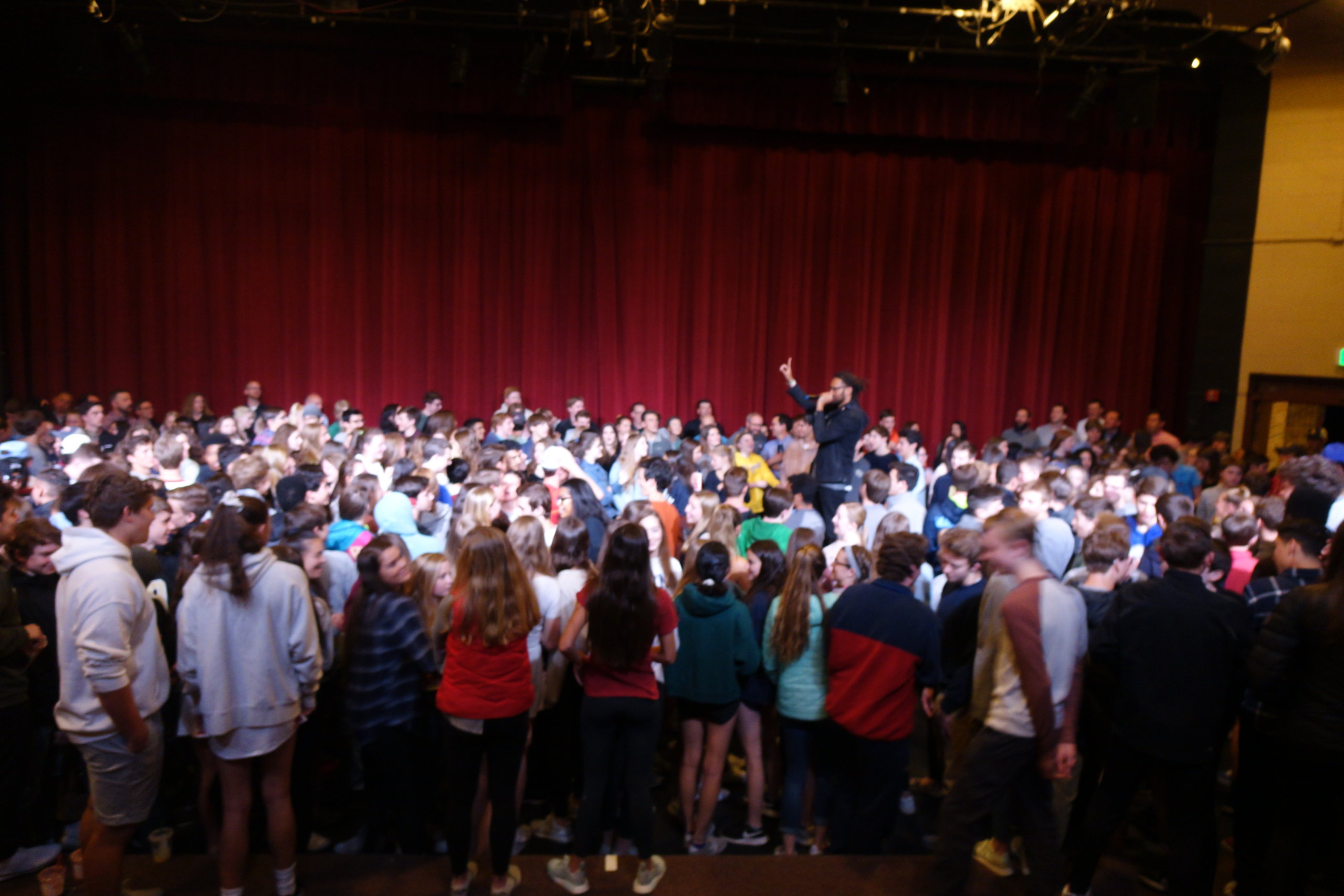We began this year with a series of Town Hall meetings for each of our academic divisions, during which I talked about Colorado Academy as a community and outlined our community “norms.” I spoke with all of our students at age-appropriate levels about how we communicate with each other, how we listen, value multiple perspectives, lean into discomfort, and practice learning from our mistakes. I talked about language as the building block for how we treat one another, and I shared multiple examples that we see in our country of hateful and racist language, and most importantly, how it has no place at CA.
That seems like so long ago, and so much has happened since this past September in our school, in our extended community, in our nation, and across the globe. Sadly, one thing has not changed, and that is the stigmatization of race and a perpetuation of a culture of fear in America. So entrenched are these patterns, that we barely pause to look up from the non-stop COVID news cycle to grieve and ache and process the stories that are even more “sickening”:
- The killing in Georgia of Ahmaud Arbery, a 25-year-old black man, simply out for a run
- The shooting of the unarmed Breanna Taylor in Kentucky, as police raided her home
- The despicable actions of Amy Cooper in New York City, falsely reporting actions of a black man
- The death of George Floyd in Minnesota, who died after being handcuffed and pinned to the ground by an officer’s knee
Earlier today, our Director of Inclusivity, Sarah Wright, sent a note to our faculty and staff titled, “acknowledging what’s happening.” Her words are so eloquent, but also so matter-of-fact.
I know many of you have probably seen the news regarding Ahmaud Arbery, Breanna Taylor, Amy Cooper, and George Floyd. This week could be particularly challenging for students or even colleagues to be present. The ongoing racism and rise of xenophobia can bring about intense emotions and induce trauma. Racism and discrimination may be weighing heavy on the hearts of many as we finalize the school year. While this week doesn’t particularly lend itself to dissecting the recent events with students in a typical setting, we can continue to lead through empathy and thoughtfulness. We can continue to be observant and responsive to the needs of our students and colleagues. It’s okay for us to acknowledge what is happening and explicitly name the tension and pain we feel in the world. If you find this topic arises for your students, and they need support with processing the events, please don’t hesitate to let me or the counseling department know. Thank you for all that you do. Summer is right around the corner. – Sarah Wright
I posit that the prevalence and acceptance of these news stories can be far more dangerous than the illness that now plagues our country. We also have seen that African Americans and Hispanic Americans have been affected disproportionately by COVID-19—something that is the result of widespread inequality and systemic racism in America. I hope that in the weeks and months ahead, as COVID-19 forces time apart, and as the end of school brings time for reflection, that we can acknowledge what is happening, and we can support and learn from one another and work toward being the kind of community that I described in our opening Town Hall meetings by quoting David Brooks from his book, The Second Mountain:
Let us be one of those “thick” communities, with a “distinct culture…the kind of communities that engage the head, hands, heart, and soul. Thick institutions have a physical location where members meet face-to-face on a regular basis, such as a dinner table or a packed gym, or assembly hall. Such institutions have a set of collective rituals….They have shared tasks, which often involve members closely watching one another, the way hockey teammates have to observe one another on the ice….Thick institutions are oriented around a shared moral cause. They tear you down in order to build you up. They enmesh you with long traditions and sacred customs that seem archaic a lot of the time. They ask you to bury your own identity in the collective identity. They point to an ideal that is far in the distance and can’t be achieved in a single lifetime.”
I do hope in all of our lifetimes, that we can arrive ever closer at an ideal of how we treat one another. I hope every Colorado Academy student can work to confront this ugliness in America and make our society more just. I look forward to the time when we can all be together again, so that we can get back to this very important work of people- and culture-building and repairing this world.
Sincerely,
Mike Davis, PhD
Head of School
Colorado Academy
